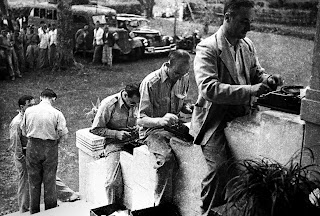
Oxford Advanced Learner’s Dictionary defines imperialist as a person or country that supports or believes in imperialism. While imperialism is the policy of extending a country’s power and influence in the world through political relations or military force. Here we see that the “media emperor” Rupert Murdoch’s actions resemble the idea of imperialism. The only difference is that Murdoch’s main intention is extending his business and profit.
One of the key words in the idea of imperialism is political relations. And Murdoch, in order to extend its business, tends to make use of the political relations both locally and globally. Locally speaking, Murdoch used his media institutions to satisfy certain political figures in order to gain profit. At local level, this Australian guy also explicitly states and donates his wealth for political activities.
Murdoch is certainly known as global media master. McChesney said Murdoch has satellite TV services that run from Asia to Europe to Latin America and owns Star TV dominates in Asia with thirty channels in seven languages. At his global achievement, Murdoch also deals with political relations. His willingness to be an American, to marry a Chinese girl, and to cope with Chinese political system, is the representation of the idea of imperialism within Murdoch, in order to gain his objectives.
McChesney states that imperialism no longer exist because of massive rejections, especially from third world countries and those who consider westerners as the agent of imperialism. Murdoch’s information-imperialism also faces this kind of obstacle. At local level, for example, Murdoch was often opposed by his employees who refused Murdoch’s personal and political intervention in news coverage. While in global area, Murdoch is sometime rejected by some political forces, as he finally got into conflict with Chinese authority, despite his success in winning his business back.
Story of Rupert Murdoch is the representation of one of several dimensions of global cultural flow, namely mediascape. As Appadurai stated, mediascapes refer to the distribution of the electronic capabilities to produce and disseminate information (newspapers, magazines, television stations, film production studios, etc.), which are now available to a growing number of private and public interests throughout the world. Murdoch is undoubtedly a transnational entrepreneur since his TV stations, newspapers, reporters, and film production studios, reaches every corner of the world. By using all of these advantages, Murdoch may be the one who create global culture.
Globalization of culture involves the use of instruments of homogenization, such as advertising techniques, language hegemonies, and clothing styles. Here we may say that Murdoch successfully apply the idea of mediascape in promoting the global culture. His media empire will be the most effective means in delivering certain ideas or way of life. At certain level, the network will be useful in conveying advertisements or any kind of propaganda.
Murdoch’s media networks obviously gain its success in “changing” certain countries’ way of thinking and life. Indonesians are now familiar with American way of life after Murdoch extended his Star TV coverage by buying one of Indonesian biggest TV stations. American advertisements and propaganda can easily be found in living rooms or even in the most private place, such as bedrooms. And I believe this also happens in other countries. Thus we may agree with Appadurai’s opinion saying that mediascape plays an important role in creating global culture because it draws the images of the world. ***


